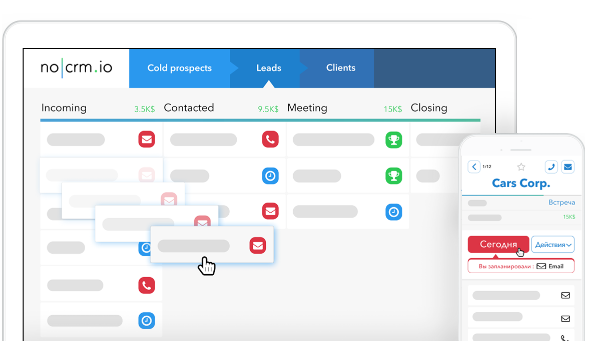
Reaching the point in a company’s lifecycle where it requires software to help sales teams is a sign of progression. The indicators point to healthy growth and an increasing number of leads entering the pipeline.
When businesses decide to implement a system – usually because Excel has outgrown their lead management – they tend to look in one place: a CRM system.
Businesses explore the CRM route because all the signifiers point in that direction. Google searches, advertising and marketing campaigns — they all indicate that a CRM is the best fit. Major CRM companies also spend time and resources ensuring their product receives maximum exposure.
The result coerces companies into believing a CRM system is the best option — and sometimes it is. But for smaller and medium-sized businesses or sales team, with a focus on deal conversion, CRM software stifles when it should liberate.
Let’s look at four four CRM mistakes companies can easily make.
CRM Mistakes: Not Properly Evaluating Your Team’s Core Needs
Before deciding on software, decision-makers need to look at the reasons for implementing it in the first place. What are the core needs of your business? It may be that you already have a high client base and need a system to manage them.
Do you need it to drive sales? Will the key function be managing leads through your pipeline? Or do you want a system to collect data? Evaluating key needs is essential. Otherwise, you could find yourself choosing a CRM system because of a snazzy marketing campaign.
Will the key function be managing leads through your pipeline?
There is an antiquated notion that CRM system is a one-size-fits-all software. That it’s usable for customer retention, lead management, data collection and many other aspects. The way tech is evolving, however, points to specialized solutions for specific pain points.
Make sure that you identify those issues before deciding on software.
CRM Mistakes: The Big CRM Marketing Machine
We have touched on it already, but it’s worth drilling the point home: Mammoth companies like Salesforce invest large amounts of money on marketing campaigns. They do this to push their product to the forefront of people’s minds. But remember: if they can afford to pay so much in marketing, it’s because each of their clients pays a large fee to use the service, and there could be high-quality solutions that best fit your needs at a more affordable price.
If we are always told that we need a CRM for lead management, sooner or later, we start to believe it. That’s how marketing works — if these companies with vast resources bang the drum loud enough, smaller businesses often fall in line and go with the status quo.
That is why research is key. Instead of being drawn into the marketing machine, spend time finding out about the product. Will it really do what you need it to? Or is it a case of doing some of what you require, but it’s not focused on your main demands?
CRM Mistakes: Data Takes Precedence
Data holds the key to the kingdom. With data, you gain a better understanding of our consumers’ mindsets. It is easy to understand why harnessing its power is so desirable to managers. But if you don’t have customers, data doesn’t have as much use.
Data holds the key to the kingdom
To steal a line from Tony Montana, albeit slightly adapted: “First you get the leads, then you get the customers. Once you have the customers, then you get the data”. For any company focusing on growth, leads are vital components.
Unfortunately, when it comes to sales, a CRM system often doesn’t provide the antidote. If building up a solid base of clients through deal conversion is the goal, CRM can be the antithesis. Just ask your sales reps…
CRM Mistakes: Not Holding Value for Your Sales Staff’s Needs
Talk to salespeople, and you will quickly understand why they dislike CRM and why you may have made CRM mistakes choosing a system. Reps don’t enjoy how time-consuming a CRM is, and it requires a large amount of data entry before even processing a lead.
That means spending 10-15 mins uploading data on different leads only for them to potentially drop out of the pipeline in the early stages. Add that time up over multiple entries, and you’re looking at days and even weeks lost over the course of a year.
A CRM requires a large amount of data entry before even processing a lead
Reps also see them as reporting tools for management, rather than a solution for managing leads. If a salesperson thinks the sole reason for something is so higher-ups can spy on their work, you are already starting from a negative position.
It’s important not to overlook your staff’s thoughts when you choose software for your sales setup.
Avoid CRM mistakes
If you need a CRM system to manage customers, collect data and automate your marketing, then, by all means, it might be the solution for you. But if converting more deals is the key focus, lead management software is a better option.
It has a sole focus on leads and moving them successfully through the pipeline. There is always a next step, so reps know which actions are pending. Entering a lead’s details is quick, and data entry is streamlined with automated features such as scanning a business card.
Tracking the progress of a lead is easily visible so all the team – including management – know its status. The software is designed specifically for salespeople.
The best way to experience lead management software is to try it for yourself. With a 15-day free trial, you will find something that puts salespeople first. Which is surely the most important factor when it comes to selling?


